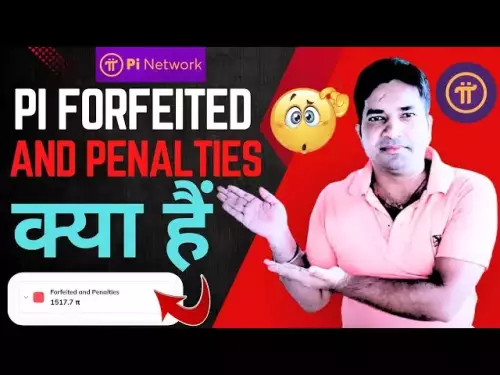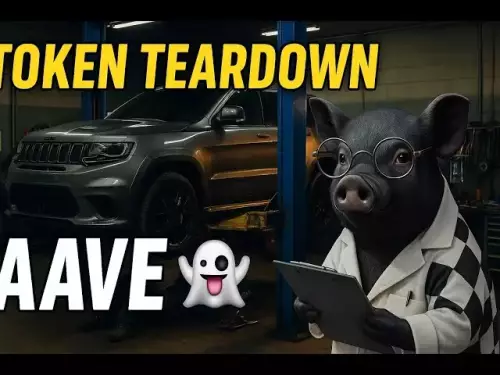 |
|
 |
|
 |
|
 |
|
 |
|
 |
|
 |
|
 |
|
 |
|
 |
|
 |
|
 |
|
 |
|
 |
|
 |
|
Cryptocurrency News Articles
Bitcoin Hardfork Buzz: Luke Dashjr's Debate Proposal Shakes the Crypto World
Sep 26, 2025 at 04:17 pm
Luke Dashjr's hardfork proposal to combat illegal content ignites a fierce debate about Bitcoin's core principles and censorship resistance.

Hold on to your hats, folks! The Bitcoin world is buzzing with a spicy new debate surrounding a potential hardfork. At the center of it all? None other than Luke Dashjr, a Bitcoin Knots maintainer, and a proposal that's got everyone talking: tackling illegal content on the blockchain.
The Alleged Hardfork Proposal: A Quick Recap
So, what's the deal? Leaked messages suggest Dashjr is mulling over a hardfork to create a trusted multisig committee. This committee would have the power to retroactively alter the Bitcoin blockchain, specifically targeting and removing illegal content, like CSAM. The goal is noble, but the implications? Well, that's where things get interesting.
Bitcoin Knots vs. Bitcoin Core: A Longstanding Feud
This isn't just a random idea popping up out of nowhere. There's a history here. The disagreement stems from the differing philosophies between Bitcoin Knots and Bitcoin Core. Bitcoin Knots folks, Dashjr included, believe that non-monetary data (aka "spam") has no business clogging up the Bitcoin network. They've even implemented filters to block transactions containing such data from entering a node’s mempool.
The Multisig Committee: Savior or Slippery Slope?
Dashjr's proposal involves a selected group reviewing transactions with CSAM and replacing the data with zero-knowledge proofs. This would allow node operators to remove the content while keeping the transactions valid. Dashjr himself acknowledges that this plan would require a consensus change and a Bitcoin hardfork, stating that "Right now the only options would be Bitcoin dies or we have to trust someone."
Why the Fuss? Implications and Concerns
Here's where the debate gets heated. Critics argue that this proposal could compromise Bitcoin's fundamental principle of being permissionless and censorship-resistant. Giving a committee the power to alter blockchain data could open the floodgates to wider censorship and even regulatory controls, like KYC and AML requirements. It's a classic "slippery slope" argument.
Dashjr's Response: Denial!
Adding fuel to the fire, when asked for comment, Dashjr reportedly rejected the reports, calling them "completely unfounded lies?" No further details were provided, leaving the crypto community to speculate and debate.
The Big Question: Balancing Act
The core issue remains: How do we deal with illegal content on Bitcoin while preserving its core values? Policymakers, miners, and node operators are grappling with balancing network governance, legal compliance, and Bitcoin's censorship-resistant design. It's a tough nut to crack.
My Two Satoshis
While the intent behind combating CSAM is undeniably commendable, the proposed hardfork raises serious concerns about the future of Bitcoin's decentralization. History has taught us that once a door to censorship is opened, it's difficult to close. Maybe there are other ways to resolve this issue.
The Debate Rages On...
Whether you're a Bitcoin maximalist or a curious onlooker, this debate is worth paying attention to. It touches upon the very soul of Bitcoin and its role in a world increasingly concerned with censorship and control. This whole situation is pretty wild, right? Makes you wonder what's next in the ever-evolving world of crypto!
Disclaimer:info@kdj.com
The information provided is not trading advice. kdj.com does not assume any responsibility for any investments made based on the information provided in this article. Cryptocurrencies are highly volatile and it is highly recommended that you invest with caution after thorough research!
If you believe that the content used on this website infringes your copyright, please contact us immediately (info@kdj.com) and we will delete it promptly.





























































